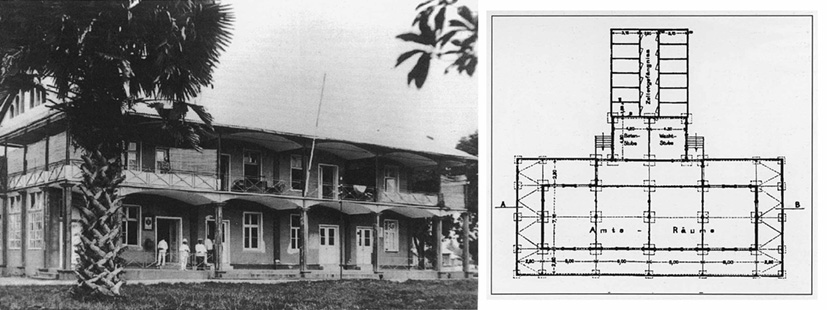
Douala (1884-1914). Urban history of a sub-Saharian city under the German Protectorate
Abstract
This study will attempt to reconstruct the features and characters of the economic capital of Cameroon, in the period between the 1884 treaty, which turned the country into a German protectorate, and 1914, the year the allied contingent of English, French and Belgian troops occupied Douala, seizing the capital and the main port of the colony from the Reich. Douala, as a colonial phenomenon, is not a univocal and objective reality, even if as an urban reality – defined by irreconcilable contrasts and juxtapositions, lacking integration, organic ties and intermediate gradations – it tends to present itself as such. The most rigorous historical studies have highlighted the exemplary dimension of Douala, which has in fact been treated as a case-study to be used as an interpretative model for many other urban phenomena in black Africa, for sites similar not only in size, but above all for having been active centres of the colonisation processes carried out by Europeans on the continent. These processes, which can be viewed through a clear timeframe, have left clear traces in the landscape, probably more marked than the changes that occurred in the system of interhuman relations. Only a study conducted in a historical perspective can convey the richness of elements that contributed to the formation of the image of the city, eliciting the structural invariants, typical of the colonisation processes, and clarifying the general context that favoured its preservation over time.
DOI: https://doi.org/10.20365/disegnarecon.25.2020.3
Keywords
Full Text:
PDFRefbacks
- There are currently no refbacks.
Copyright (c) 2020 Doti
DISEGNARECON
ISSN 1828 5961
Registration at L'Aquila Law Court no 3/15 on 29th June, 2015.
Indexed in SCOPUS. Diamond Open Access. All papers are subjected to double blind peer review system by qualified reviewers.
Journal founded by Roberto Mingucci
